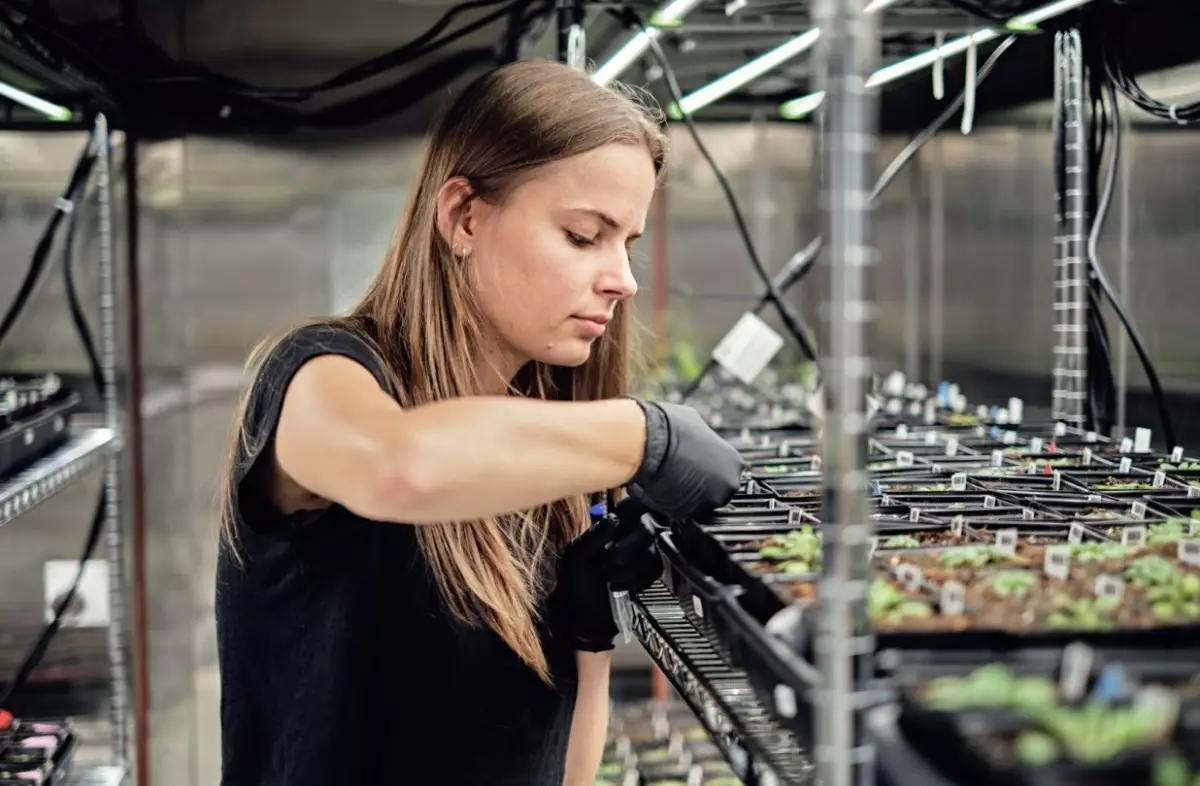In a dynamic leap toward transforming agriculture, Google’s X lab, often referred to as the “moonshot factory,” recently unveiled Heritable Agriculture, an innovative startup designed to fundamentally change crop cultivation. At its core, Heritable aims to synthesize the power of data and machine learning with traditional farming practices. This initiative comes in response to pressing global challenges associated with agriculture which, despite being an ancient practice, has significant environmental repercussions. The industry is currently responsible for nearly 25% of human-induced greenhouse gas emissions, alongside critical concerns like soil degradation, water consumption, and pollution from agricultural chemicals.
With the consequences of conventional agriculture bearing heavily on the planet, Heritable Agriculture embraces a bold vision: to optimize plant growth using advanced technological tools. The startup emphasizes the idea that plants are inherently remarkable systems—self-assembling entities powered by sunlight, nurturing ecosystems that also act as carbon sinks. This realization drives Heritable’s mission to harness technology for a sustainable agricultural future, making the case for an urgent reevaluation of how crops are cultivated.
Spearheading this ambitious project is Brad Zamft, founder and CEO of Heritable, who possesses a rich background in both the scientific and tech realms. Formerly a physics PhD and a program officer at the Bill and Melinda Gates Foundation, Zamft’s expertise is complemented by his time at TL Biolabs. It was during his tenure at Google X that he identified a pivotal opportunity: optimizing plant genetics. He explains that the vision for Heritable was not merely about improving crop yields, but about merging advanced technology with agricultural strategies in ways that are scalable and impactful.
Zamft notes the unique freedom that comes with being part of Google’s experimental ecosystem, stating, “I was given broad purview to work on whatever I wanted.” This autonomy enabled the project to navigate the rigorous processes within Google X, ultimately leading to the establishment of Heritable Agriculture as a separate entity.
At the heart of Heritable Agriculture’s approach is the use of machine learning to explore plant genomes. By analyzing vast amounts of genetic data, the company aims to identify advantageous plant combinations that can enhance yields while reducing required resources such as water and land. Zamft elaborates on this innovative process, detailing their comprehensive testing methods, which involve specialized growth chambers designed to simulate various environmental conditions. This rigorous experimentation has enabled Heritable Agriculture to curate data-informed agricultural practices that promise better sustainability outcomes.
The strategic focus on plant breeding, rather than immediate genetic editing, underscores Heritable’s commitment to maximizing existing biological frameworks. Zamft specifically points out that while CRISPR and other gene-editing technologies are on the horizon, the current strategy prioritizes traditional breeding techniques to achieve sustainable improvements. This approach not only respects the natural integrity of crops but also meets urgent agricultural needs without diving into the controversial waters of genetic modification.
As Heritable Agriculture takes its first steps toward commercialization, questions about timelines and partners remain under wraps. However, the company has recently completed a seed funding round backed by prominent investors, including Google itself. This financial infusion promises essential support for the scaling of Heritable’s innovative technologies, and with the backing of seasoned investors, there are high hopes for its future.
Moreover, the exit of several employees from Google X due to organizational restructuring has paved the way for a sharper focus on spinning off successful startups like Heritable. As the pressures of climate change escalate, the agricultural sector will require forward-thinking solutions, and Heritable Agriculture stands poised to be a leader in this transformative landscape.
The creation of Heritable Agriculture represents a crucial intersection of technology and sustainable practices in farming. With its reliance on machine learning and data analysis to inform plant breeding, it offers a promising outlook for an industry desperately in need of innovation. By embracing the natural capabilities of plants and supporting them with technology, Heritable Agriculture could forge a new path towards a sustainable agricultural future that benefits both humanity and the planet.

